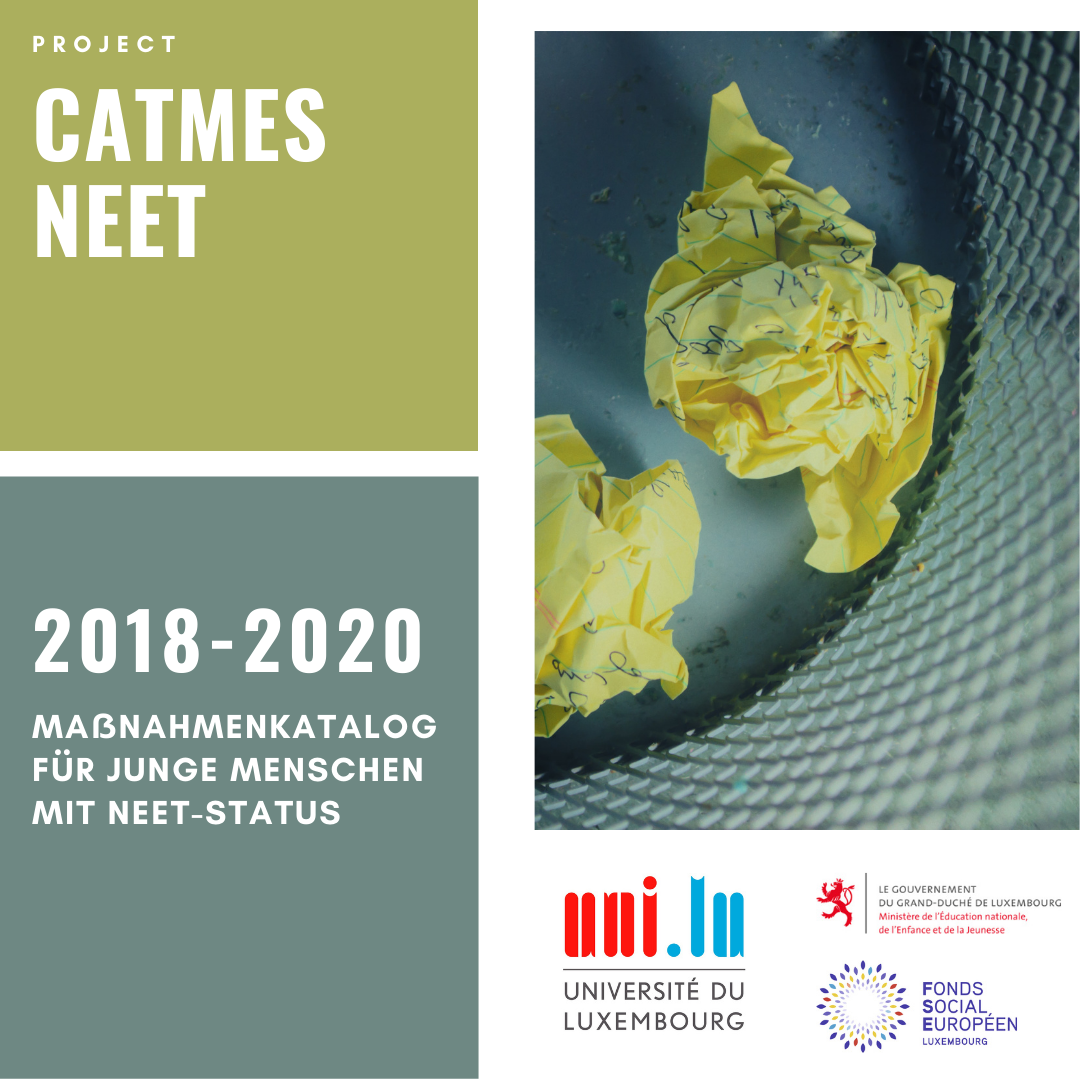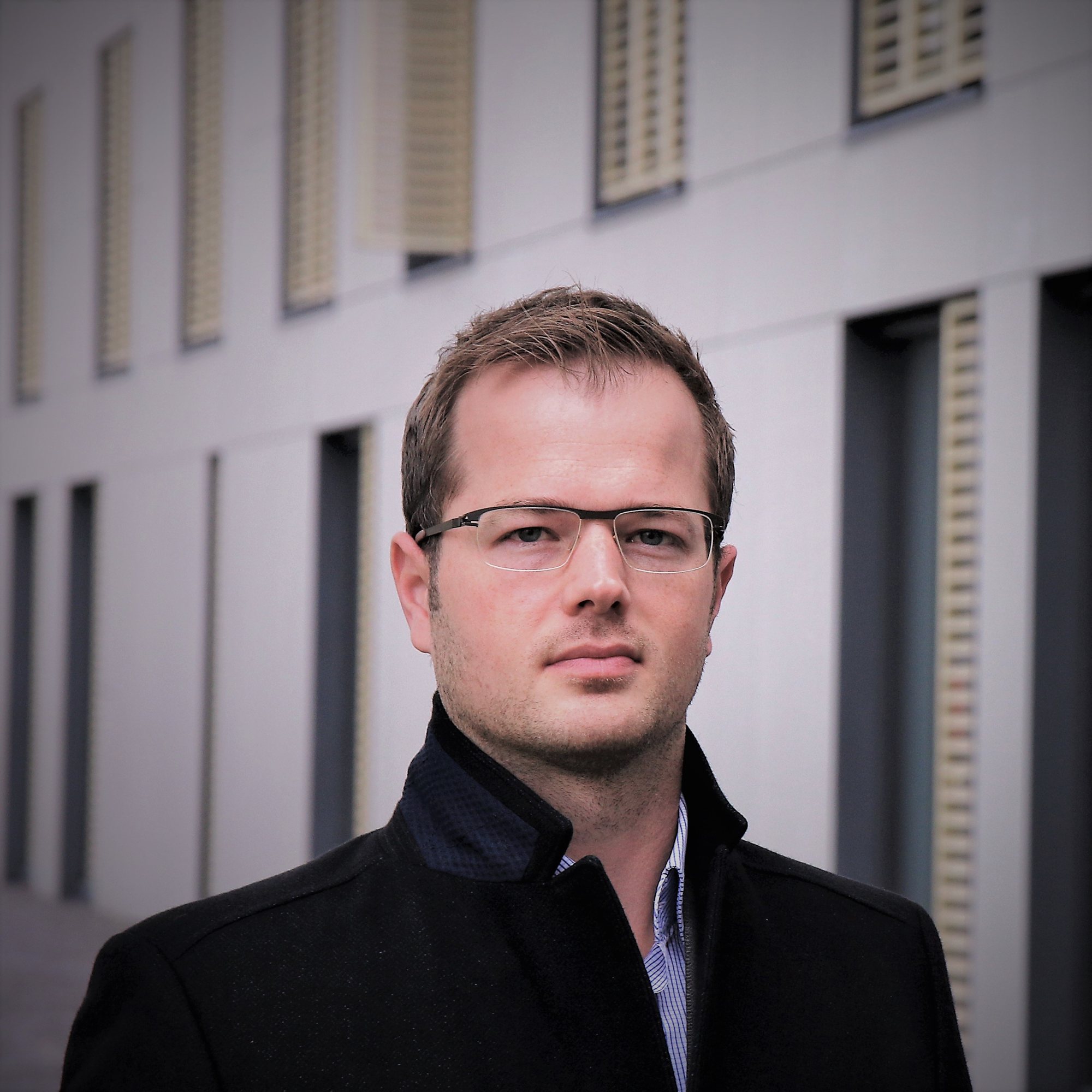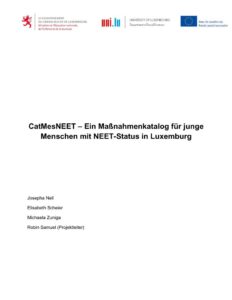Prof. Dr Robin Samuel is Associate Professor and Director of the Center for Childhood and Youth Research (CCY) at the University of Luxembourg.
Catalog of Measures for Young NEETs (CatMesNEET)
The step from school to working life is a major challenge for most young people. This is described in detail in the 2015 Youth Report.
Some young people do not succeed in taking this step straight away – a fact that researchers at the University of Luxembourg were also able to identify in 2015.
What offers, however, are there for young people who are no longer learning at school but have not yet taken up a profession or vocational training?

Jump to content
NEET: „Not in education, employment or training“
Especially young people in a NEET situation “fall through the system”. Systematic surveys of all services and measures in Luxembourg for this target group were still missing after 2015. In this knowledge gap, the research project CatMesNEET was created between 2018 and 2020 in cooperation between the Ministère de l’éducation nationale, de l’enfance et de la jeunesse (MENJE) and the University of Luxembourg. During an interview with Dr. Josepha Nell (DG Jeunesse, MENJE), we have learned more about the project.
Interview with Dr. Josepha Nell
Dr. Nell, what does “CatMesNEET” mean and what can I expect from the project?
The starting point of the CatMesNEET project (Catalogue de mésures pour NEETs) was to identify measures for young people aged between 15 and 29 in Luxembourg who have NEET status. The acronym NEET stands for “Not in Education, Employment or Training” and refers to young people who are not in education, employment or training.
This target group has come under particular scrutiny from European and national policymakers in the wake of the 2008 global economic crisis and the resulting dramatic rise in youth unemployment in Europe.
In 2018, the Ministry of Education commissioned the University of Luxembourg to find out which current measures support this target group. In this context, measures are understood as all those offers for young people that are intended to help them get out of their problematic NEET situation.
What did the researchers find out about the needs of young people?
The initial analyses already revealed that the target group is very heterogeneous, as the adolescents and young adults are in different life situations and have different needs. The only thing these young people have in common is that they are not part of the labor market or the education system. In addition, the label “NEET” often masks deeper and more complex problems, such as family problems, addictive behavior, housing shortages, financial hardship, as well as disabilities and learning difficulties. Most young people with NEET status have a combination of different problems, some of which are mutually dependent. In many cases, these – upstream – problems must first be addressed before those affected are ready for placement in the labor market or a return to the school system.
How did the scientific project team explore the Luxembourgian landscape of measures for young people with NEET status?
Through intensive literature research and discussions with youth workers, the project team defined 25 risk factors that can lead to NEET status. In a second step, the risk factors were categorized and reformulated into goals. In other words, the question was addressed: which goals must be pursued in order to support the young people concerned? The following 5 main goals could be identified:
- education, training and career-related goals
- social and societal goals
- family and environment-related goals
- material and standard of living related goals
- health and disability-related goals
In a subsequent step, measures were identified in Luxembourg for adolescents and young adults between the ages of 15 and 29 that could be assigned to one or more of the aforementioned goals. A total of 664 measures were collected and entered into a database. Since the measures collected address social issues from all sectors of society, the database is relevant for a broad spectrum in science, politics and practice. The project, which was funded in equal parts by the Ministry of Education (MENJE) and the Fonds social européen (FSE), is comprehensibly presented in a final report. This report will also describe how the measures are distributed geographically, for which target groups there are particularly many offers and which areas show a lack of measures. The final report will be available on these pages as soon as possible.
What excites you most about CatMesNEET?
The CatMesNeet project illustrates very well how a scientific empirical approach can be made socially useful. Behind the development of the catalog is an intensive research work that follows a qualitative paradigm. The goal of creating a catalog that can be used in social work on the one hand and meets scientific criteria on the other hand could be realized. This was not least due to the fact that a qualitatively open approach in the initial phase and a quantitative implementation approach in the survey phase were possible.
Dear Dr. Nell, thank you very much for your time and for the interview!
The interview was conducted by Moritz Höpner in February 2021 for the DDRC.
Infobox – Knowledge transfer
The CatMesNEET project is an example of how science can support the work of public and government institutions: The project was handed over to the Ministry of Education after its completion in 2020. There, the data will be further processed and revised.
The goal is to create a catalog that is accessible to youth workers and social workers who work with young people. In addition, the adapted catalog is to be made directly available to young people as an app.
The project also shows how much time it takes for the findings of solid, scientific work to take root in practice. Long-term project funding and collaborations thus remain indispensable for a public sector that shapes evidence-based policy.
CatMesNEET was funded in equal parts by the Fonds social européen (FSE) and by the Ministère de l’Education nationale, de l’Enfance et de la Jeunesse (MENJE). Scientific project leader: Robin Samuel; participating scientists: Josepha Nell, Elisabeth Scheier, Michaela Zuniga.






